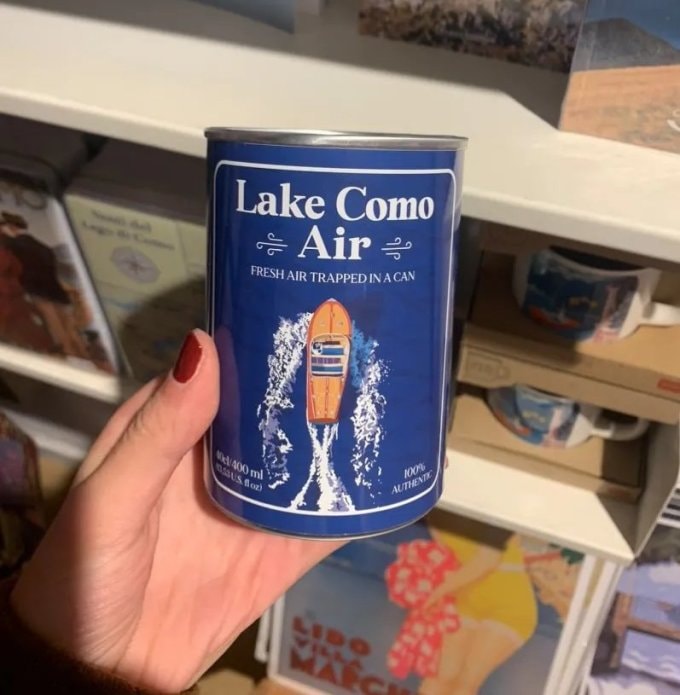The fresh and peaceful air at tourist attractions is packaged and sold to tourists as souvenirs.

More and more tourist destinations around the world are offering cans of "canned air" as unique souvenirs.
From Swiss mountain air to the "secret air" of Lake Como in Italy, air boxes have many curious, while others question whether they're really worth it.
The latest product comes from Italy and is called "Lake Como Air". Advertised as "100% pure air from Lake Como, packaged in luxury packaging", the box contains 400ml of air in a dark blue can with an image of a boat and curving white waves.
The product website describes the air as carrying a slice of Lake Como, perfect for those who want to explore the serenity of this landscape. The air is sealed in a can, open it when you need a moment of relaxation and peace.
For nearly 10 euros, the buyer receives a can of air composed mostly of nitrogen (78%) and oxygen (21%), along with small amounts of other gases such as argon, carbon dioxide, neon, helium, methane, krypton, hydrogen, xenon and 0.0000001% of the "secret formula of Lake Como".
Daniele Abagnale, a representative of the company that produces the product, said he wanted to package the lake air into cans that customers could take with them all over the world. "The special thing is that when you open the jar, it can be turned into a pen holder or a vase and it is completely recyclable," Abagnale said.
Some people believe that "Lake Como Air" is a product that shows modern consumer trends and Italian creativity.
Gennaro Ciaravolo, an Italian, invented "Aria di Napoli" (canned air) by filling empty US military food cans with Napoli air and selling it back to soldiers during World War II.
In 1970, Ciaravolo's grandson followed up on this unique prank by organizing an exhibition at the Venice Biennale, featuring cans of "fried air" from Milan, fog from Carnaby Street in London, and holy air from Rome.
These days, this travel gift is no longer satirical. Canned air from the Isle of Man, Ireland, sells for €20 and is said to ease homesickness and relieve stress, while air from Altay, Xinjiang, China, is described as “intoxicating.” Visitors can also write notes on the cans like postcards.
Some popular outdoor spots have taken canned air beyond humorous souvenirs.
Since the early 2010s, tourist destinations such as the Swiss Alps and the Canadian Rockies have sold aerosol cans of fresh mountain air to provide about 160 breaths to people living in heavily polluted areas in China and India.
In 2016, British company Aethaer also began selling air from five "outstanding beauty spots" in the country to help raise awareness about air pollution.
TB (according to VnExpress)